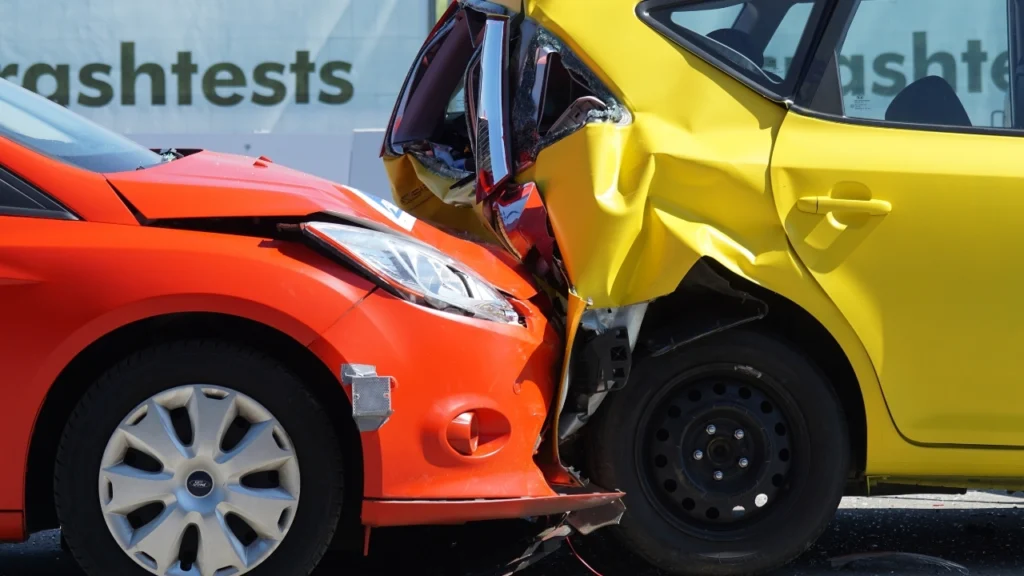After a car accident, the last thing you want is to fight over medical bills. But does health insurance cover car accidents or will you get stuck with the costs? This essential guide gives you clear answers on what’s covered, when it’s not, and how to protect your rights after a crash.
Key Takeaways
- Health insurance can help after a car accident, but it’s not your first line of coverage: Auto policies like PIP, MedPay, or liability insurance usually pay first your health plan might only step in afterward.
- If your health insurance does pay, it may expect to be reimbursed later: This is called subrogation, and it usually happens if you get a settlement from the at-fault party’s insurance.
- Not all medical bills are automatically covered: Some health plans may deny claims related to car accidents, especially if other insurance should’ve paid first.
- Your role in the accident and your coverage types matter: Whether you’re the driver, a passenger, or a pedestrian can change which insurance pays and how much.
- You have options if coverage is denied: Legal help, state compensation funds, or challenging the denial directly can make a real difference.
Table of Contents
What You Need to Know First
If you’ve been hurt in a car accident, medical bills can add up fast. You may wonder if your health insurance will cover those costs and if so, how much and when. The truth is, health insurance can help, but it’s not always the first in line to pay. Understanding how your policies work together can save you time, money, and stress. Let’s break it down.
If you’ve ever asked, “Does health insurance cover car accidents?” this quick video has How Health Insurance Affects Your Car Accident:
Does Health Insurance Cover Car Accidents?
Yes, health insurance can cover car accident injuries but it usually kicks in after other types of insurance. If your auto policy includes medical coverage like PIP (Personal Injury Protection) or MedPay, those are billed first. Once those are used up, your health insurance may step in to cover the rest depending on your plan.
Check your policy or call your insurer to find out what’s included. Not all health plans treat accident injuries the same way.
Medical vs Auto Insurance: Who Pays First?
In most cases, your auto insurance pays first. That includes PIP or MedPay, if you have them. These cover your injuries regardless of who caused the crash.
Once those funds run out, your health insurance can help pay the remaining bills. But be aware your health insurer may want reimbursement later if you get money from a settlement or lawsuit.
In some states, PIP coverage is required. In others, it’s optional. That affects who pays what and when.
What Health Insurance Typically Covers After a Crash

Health insurance can cover a variety of medical expenses following a car accident, but the specifics can vary depending on your plan. Understanding what’s covered and what isn’t can help you navigate the aftermath of an accident more smoothly. Here’s what you can generally expect:
Emergency Room Visits and Hospital Bills
Health insurance will typically cover emergency room visits if you’re injured in a car accident. This includes the cost of initial exams, scans (like X-rays or MRIs), and any immediate treatments or surgeries needed to stabilize your condition.
While health insurance often covers these costs, keep in mind that you may still be responsible for deductibles, co-pays, or coinsurance based on your plan.
Ongoing Treatment, Therapy, and Medications
Once you’re out of the emergency phase, your health insurance may cover the cost of ongoing treatment. This could include physical therapy, medications, and follow-up visits with specialists. However, coverage will depend on your plan’s terms, including whether the treatment is deemed medically necessary and falls within your policy’s network.
If your auto insurance covers some of these treatments (via PIP or MedPay), your health insurance may not pay for them, or it may only cover the remainder after your auto insurance payout.
What If You’re Not the Driver?
If you’re a passenger or pedestrian involved in the accident, your health insurance can still cover your medical costs. However, how much is covered and who pays first may depend on the circumstances. For example, if the driver’s insurance is at fault, their policy (like PIP or liability) may pay for your injuries first.
Tip: In some cases, if the responsible driver has insufficient insurance, your health insurance might be the primary source of payment, particularly if you’re covered under a comprehensive medical plan.
When Health Insurance Might Not Cover Your Car Accident
Health insurance doesn’t always cover the costs of a car accident. While it can help pay for medical bills, there are situations where it might not be applicable. Understanding these scenarios can prevent surprises and help you navigate your post-accident recovery more effectively.
Does health insurance cover car accidents? It often does but your insurer may try to recover costs through a process called subrogation. Watch the video to learn how it works:
Coordination of Benefits: Whose Policy Comes First?
When you have both health insurance and auto insurance, the coordination of benefits (COB) determines which policy pays first. In most cases, your auto insurance will cover the medical bills if you’re in an accident, particularly if you have Personal Injury Protection (PIP) or MedPay as part of your auto insurance. Health insurance will generally act as secondary coverage, picking up remaining costs.
Tip: Some states have “no-fault” laws, where your auto insurance pays for your medical expenses first, regardless of who caused the accident. It’s important to check your state’s laws to see how they apply to you.
If You Have Auto Coverage Like PIP or MedPay
If you have PIP or MedPay as part of your car insurance, these coverages typically handle medical expenses for car accident injuries, potentially reducing or eliminating the need for health insurance to pay. PIP covers medical costs, lost wages, and sometimes other expenses like funeral costs, while MedPay typically covers medical bills only.
When you have PIP or MedPay coverage, your health insurance may only cover costs that exceed what your auto insurance paid, or it may not be involved at all.
Situations Where Coverage Gets Denied
Health insurance may deny coverage for your car accident injuries in certain situations. Common reasons include:
- Illegal activities: If you were injured while committing a crime (e.g., DUI), your health insurance may not cover the injuries.
- Failure to file claims properly: If you don’t follow the necessary steps for filing your claim, your health insurance may refuse to pay.
- Pre-existing conditions: If your injuries are linked to a pre-existing condition, insurance might deny coverage.
- Non-disclosure: If you fail to disclose relevant information (like your role in the accident), the insurer might deny your claim.
Always review your insurance policy and state laws to understand when coverage might be denied, and be diligent about filing claims and following procedure.
Do You Have to Repay Your Health Insurance After a Settlement?
After a car accident, if your health insurance paid for your medical bills, you may be required to repay them after receiving a settlement from the at-fault party or their insurance. The process is called subrogation, and it’s important to understand how it works, how to handle repayment requests, and how a lawyer can help reduce what you owe.
Understanding Subrogation and Liens
Subrogation occurs when your health insurer seeks reimbursement after they’ve paid for your accident-related medical bills. Once you receive a settlement, your insurer may file a lien, claiming a portion of your settlement to recover the money they paid.
Example: If your medical bills were $10,000 and you receive a $30,000 settlement, your insurer may request a percentage of the settlement to cover those costs. The exact amount varies depending on your insurance policy and state law.
The key is that the amount you owe isn’t always set in stone. Subrogation can be negotiated, and in some cases, health insurers may accept a reduced payment.
How to Handle Repayment Requests
When you receive a repayment request from your health insurer, it’s not the end of the road. You don’t have to automatically pay the full amount. Here’s what you can do:
- Review the request carefully: Make sure the amounts and terms align with your insurance policy.
- Negotiate: You can try to reduce the amount owed by showing that other costs, such as attorney fees, took a significant portion of your settlement.
- Explore payment options: If the amount is large, you might be able to set up a payment plan.
How a Lawyer Can Help Reduce What You Owe
A personal injury lawyer can be an invaluable resource when dealing with health insurance repayment. They can help you:
- Negotiate the subrogation amount: Lawyers often have experience reducing subrogation claims by challenging the amounts owed.
- Handle the lien: If the lien is excessive, a lawyer can work to lower it or even get it removed.
- Maximize your settlement: By negotiating with health insurers, your lawyer can help you retain more of your settlement after paying your medical bills.
If you’re unsure about the repayment process or facing a large lien, hiring a lawyer can ensure you don’t end up paying more than you have to.
What To Do If Health Insurance Won’t Pay
If you’ve been injured in a car accident and your health insurance won’t pay, you’re not out of options. While frustrating, these denials often come down to technicalities things like policy exclusions or unclear billing between your auto and health insurers. Here’s how to handle it, step by step.
Review Your Policy and Exclusions
Before you panic, start by reviewing your health insurance policy. Sometimes, coverage for car accident injuries is limited, delayed, or denied if:
- The plan expects auto insurance like PIP (Personal Injury Protection) or MedPay to pay first.
- There’s an exclusion for injuries caused by third parties (like other drivers).
- The insurer is waiting to see if someone else (like the at-fault driver) will pay.
Ask your insurer for a written explanation of the denial. Look for words like “coordination of benefits,” “third-party liability,” or “primary vs. secondary coverage.”
Understanding these terms helps you figure out who should pay first and whether your health insurer must cover anything at all.
Talk to a Personal Injury Lawyer
When health insurance won’t cover your car accident injuries, it may be time to speak with a personal injury lawyer. They can:
- Review your denial and explain if it was valid.
- Help you appeal the denial or get your bills paid by the correct party.
- Fight to get you compensation from the at-fault driver’s insurance or from your own policy if they’re uninsured.
If your injury involved an uninsured driver, hit-and-run, or multiple insurance policies, a lawyer can untangle the mess and make sure you’re not left holding the bill.
Explore State Resources or Compensation Funds
If you don’t have auto insurance or the at-fault driver was uninsured, you might qualify for help from state compensation programs. These programs are designed to help victims of accidents who can’t get coverage any other way.
Depending on your state, you might find:
- Uninsured Motorist Compensation Funds
- Crime Victim Compensation Programs (in hit-and-run cases)
- State-Backed Medical Reimbursement Funds
Example: In California, the Victim Compensation Board may cover medical expenses for eligible accident victims when no other coverage applies.
You can usually apply through your state’s Department of Insurance or public safety website. Requirements vary, but you’ll likely need medical records, a police report, and proof of your denied insurance claim.
Conclusion
Navigating medical bills after a car accident can be overwhelming but understanding how health insurance fits into the picture helps you take control. This guide clarified when health insurance kicks in, what it pays for, and when you might have to pay it back. If you’re dealing with a crash, take the next step: review your policies and speak with a personal injury attorney to protect your rights. With the right information and support, you can handle the process with confidence and peace of mind.
FAQs
Does health insurance cover car accidents?
Yes, health insurance can cover medical costs from a car accident but it usually pays after auto insurance is used.
Does medical insurance cover car accidents if I don’t have auto coverage?
Yes, if you don’t have auto coverage or your auto policy doesn’t include medical benefits, your health insurance can step in to pay for treatment.
Who pays first health insurance or auto insurance?
Auto insurance usually pays first, especially if you have coverage like PIP (Personal Injury Protection) or MedPay. Health insurance often acts as secondary coverage.
What medical expenses will health insurance cover after a car accident?
It can cover hospital stays, surgery, physical therapy, prescriptions, and follow-up care but your exact benefits depend on your policy.
Does health insurance pay for auto accidents if I was at fault?
Yes, your health insurance can still cover your treatment even if you were at fault in the accident.
Do I have to pay my health insurance back after a car accident?
Often yes if you receive a settlement from the at-fault driver’s insurance, your health plan may ask for reimbursement through subrogation.
What does it mean if health insurance won’t cover a car accident?
This usually means your insurer believes another policy (like auto insurance) should pay first, or that the treatment wasn’t covered under your plan.


